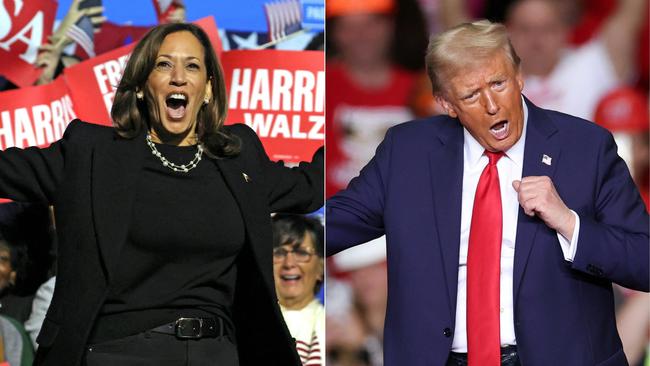
In Kamala Harris, Labor sees a status-quo outcome, a re-enforcement of its own agenda with a politically aligned link to Democrats in Washington.
The Anglosphere would also be reconfirmed as a recently established centre-left semi-global polity, however weak it might be, following the election of Labour in the UK.
The leftist euphoria of all this will be hard to contain, should it materialise.
The potential of a second Trump presidency up-ends all of this. And the perils for Anthony Albanese of such an outcome have only deepened.
The difficulties that would arise are significant, although they are not insurmountable.
And a new discipline applied to his caucus, many of whom would not be able to contain their disdain, would test Albanese’s leadership.

The Prime Minister hasn’t made it easy for himself, with The Daily Telegraph’s expose of ill-disciplined remarks about how soiled he felt at the thought of Trump as president in 2017.
Albanese certainly wasn’t alone. He had friends at home and abroad. And it would have then been unthinkable to Albanese at the time that a second Trump presidency could coincide with his own prime ministership.
Nevertheless, should Trump be returned to the White House, Albanese through his own remarks, has ensured he would start well behind the mark on the most important leader-to-leader relationship for Australia.
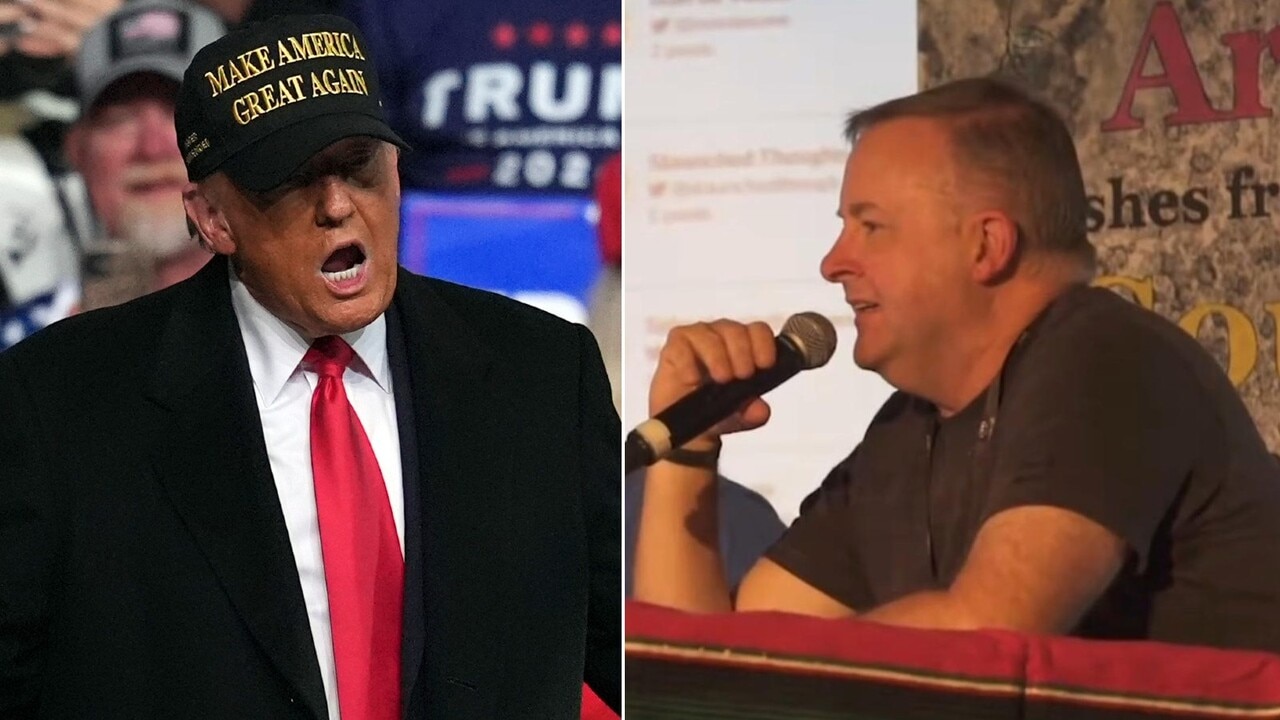
This is a relationship Albanese would have to work even harder to foster beyond what would be already obvious difficulties. Too much is at stake.
Albanese would have to deal with Trump directly: on AUKUS, at the Quad, at meetings of the G20 and in arguing Australia’s special trade case against US tariffs.
Much has been made of Kevin Rudd’s commentary on Trump. In his defence, Rudd’s worst criticisms were levelled when Trump was no longer president and Rudd had no official Australian role.
Now Australia’s ambassador to the US, Rudd has since courted the Republicans in a charm offensive that most Washingon DC insiders consider enough to have done the job. And concerns about Rudd assume Trump would care enough to be punitive. At worst he would ignore him. And Albanese has no intention of replacing Rudd. If Trump wins, Rudd stays.
But this is the least of Albanese’s problems under a potential second Trump presidency.
Albanese’s own now public views on Trump, made when the Republican candidate was last president, will not be lost on Trump’s advisers, who might equate Albanese’s view with a suggestion that Trump was a greater threat to global stability than Vladimir Putin or the head of Hezbollah.
There is no reason AUKUS, defence or security issues – think the Five Eyes security alliance – should be impaired unless Labor left warriors, including Foreign Minister Penny Wong, are unable to hide their disdain for Trump.
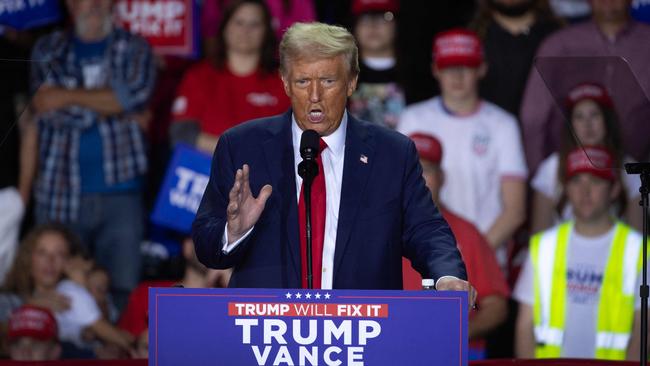
Where Albanese will come under most pressure will be arguing through the trade arrangements. Australia has a free-trade deal with the US and combined with AUKUS and Quad relationships, it would be fair to assume that if anyone would get a free pass under Trump’s tariff sanctions, it would be Australia.
That should be the expectation and that is what Albanese would need to secure.
Scott Morrison and Malcolm Turnbull had to argue vociferously to ensure Australia maintained steel and aluminium access into the US. They protected the position but it was achieved only through persistence and the leader-to-leader relationship.
Albanese will also have to be careful not to fall in line with the Europeans should Trump win.
The domestic implications for Albanese are equally problematic.
Mick McNeill, a former US embassy official, now the managing director of the strategic advisory firm Bower Group Asia, says the election of Trump would alter Australia’s political dynamics.
“A Harris victory would continue the centre-left AUKUS triumvirate,” McNeill says. “It would also encourage Labor to aim for a surge of female support on issues such childcare and reproductive rights.”
The defining images of the 2024 election
On the other hand, the Greens would use a Trump victory to amplify their antipathy towards the US alliance and AUKUS, with the aim of siphoning more votes from Labor’s left flank.
“Albanese, a warrior of Labor’s Left faction, would be expected to mount a defence of the alliance,” McNeill says.
This would provoke a conspicuous reaction from the Greens, seeking to wedge Albanese on Trump, and a potential rearguard from the Labor left.
Trump would also exit the Paris climate change agreement and seek to boost US gas production and LNG exports, challenging Labor’s energy and climate change ambitions.
“Biden and Albanese last year declared climate change the third pillar of the alliance – this would be ditched by Trump,” McNeill says.
“But net-zero transition is fundamental to Labor’s economic agenda and climate change has been at the core of the Albanese government’s diplomatic efforts.”
Morrison, unsurprisingly, doesn’t share the doomsday narrative about Trump as president, despite the inflationary warning of Trump’s trade agenda and the secondary economic impact of a trade war against China.
“The mistake people always make about Trump is they use orthodox assessment parameters to assess someone who is just not orthodox,” Morrison says.
“As a result, for practical purposes, their calibration is off. Like Elon Musk, he’s a disrupter. If Trump wins, then if business and allied partners adjust, they can do well. As for VP Harris, it will be business as usual, however without the certainty of position that was present under President Biden as he was a known quantity. Either way the alliance and AUKUS is fine, assuming the government handles the relationship well.”
This assumes, however, that Albanese can harness the best of his diplomatic and political skills to deal with this as he leads Labor heads to an election on an agenda that could be easily disrupted.
Considering 70 per cent of Australians don’t like Trump, Albanese would be left between a rock and a hard place.


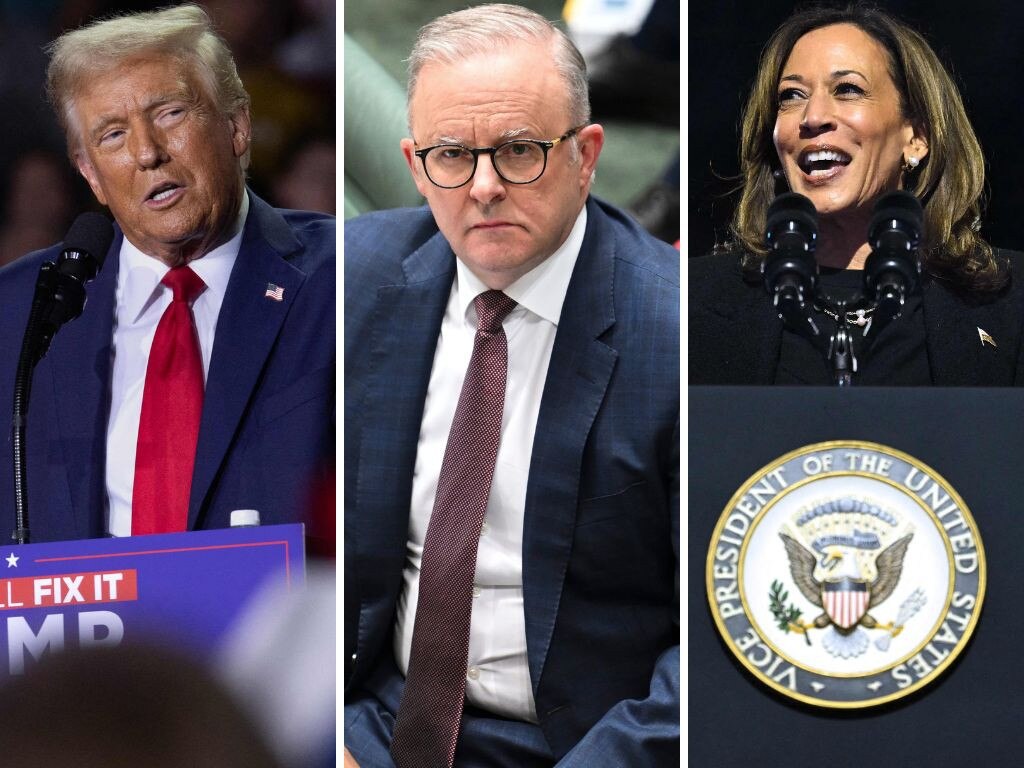
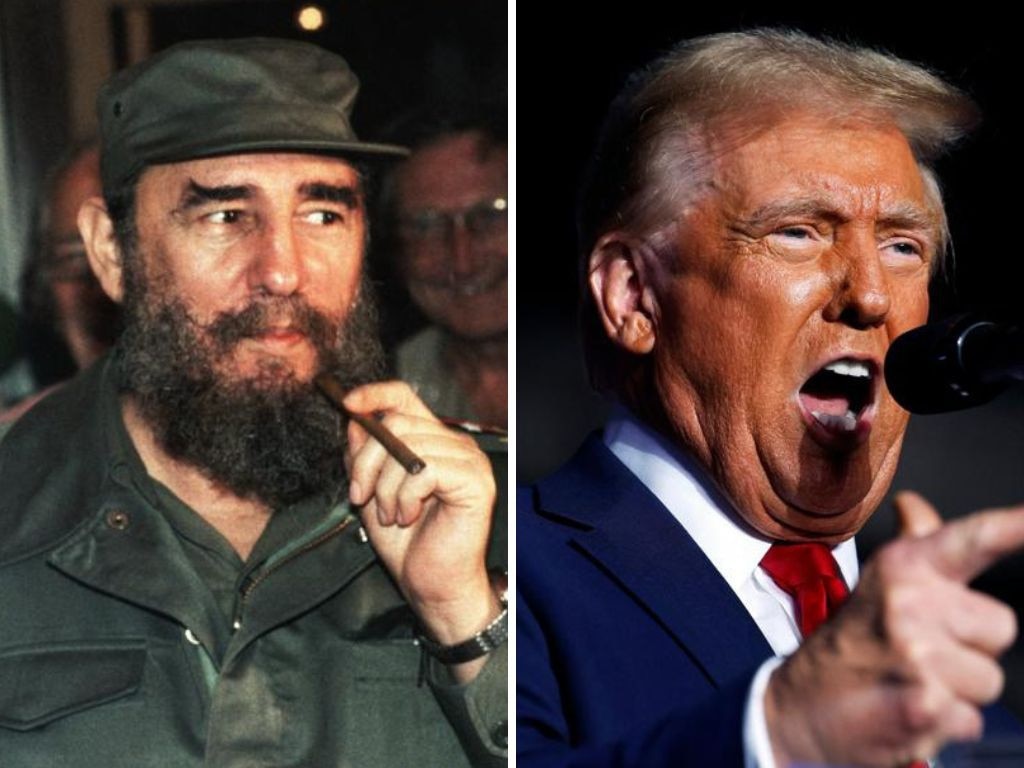


Rarely has a US election result been as potentially profound for Australia.